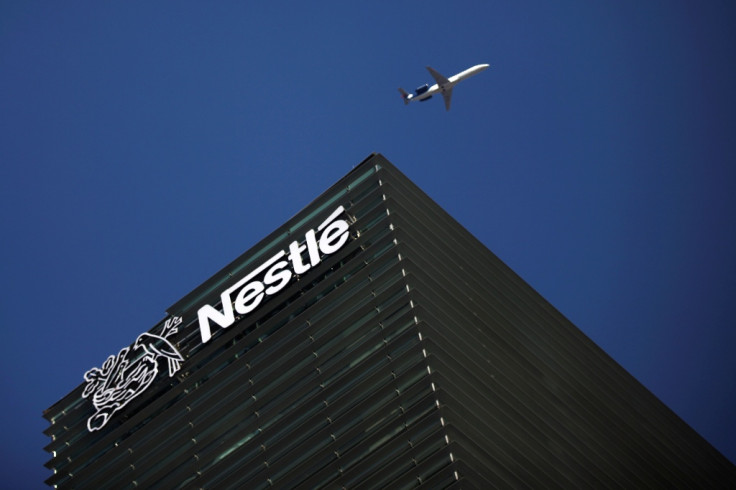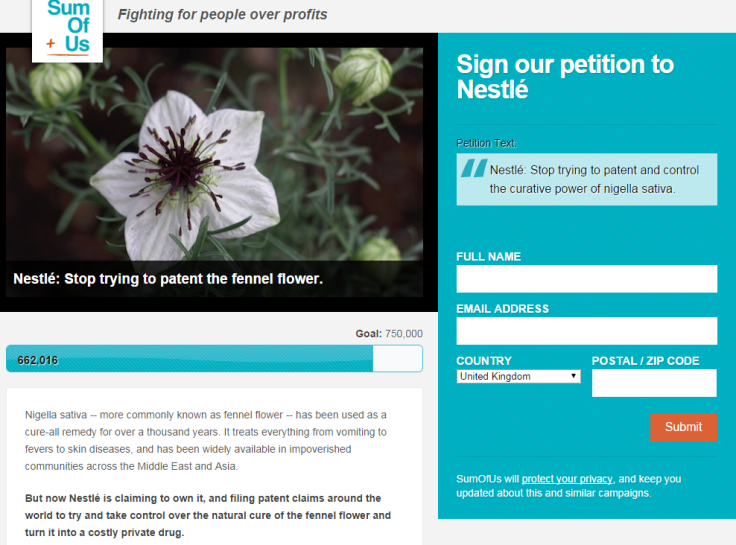Petition to Stop Nestlé 'Patenting the Fennel Flower' Goes Viral on Facebook

A petition to stop food giant Nestlé from patenting the fennel flower – a natural remedy – has almost reached its goal of 750,000 signatures, thanks to a recent social media boost.
The petition claims Nestlé is "filing patent claims around the world to try and take control over the natural fennel flower and turn it into a costly private drug."
It accuses the Swiss corporation of acting "unethically" by "trying to patent a natural cure" that has existed for over a thousand years and that is used widely in "impoverished communities in the Middle East and Asia."
Nestlé is attempting to create a nigella sativa monopoly and gain the ability to sue anyone using it without Nestlé’s permission.
After going viral on Facebook in October - despite being over a year old - more than 662,000 people have signed the petition on social responsibility site Sum Of Us.
However, there appears to be little factual basis in the petition, after Nestlé and a number of conspiracy debunking websites have attempted to dispel the accusations.
On its website, Nestlé has a page dedicated to the fennel flower question, also known as Nigella sativa, black seed and black cumin. Under the question: "Is Nestlé patenting the fennel flower?" the company responds: "No. We're not claiming to 'own' the fennel flower, nor are we trying to patent it."
But it goes on to say: "Our patent application related only to the specific way thymoquinone – a compound that can be extracted from the seed of the fennel flower – interacts with opoid receptors in the body and helps to reduce allergic reactions to food."

The stipulation has led forum users discussing the legitimacy of the patent to declare the response "not convincing".
Some users on the MetaBunk forum have challenged the facts in the Sum of Us petition but say that the activism site raises "important" questions surrounding the actions of a large corporation.
In response, Nestlé says: "Fennel flower seed has been widely used in India and other countries for centuries and its benefits are widely appreciated. In recent years, researchers have published various studies on the positive effects of fennel flower seed in treating various allergies, including those affecting the respiratory system, but not specifically food allergy.
"Our scientists have discovered and researched a specific aspect of the way thymoquinone - a compound found in fennel flower seed - interacts with opioid receptors in the body to help reduce allergic reactions to foods."
Nestlé is no stranger to criticism regarding its ethics. The company was famously involved in a number of scandals, most notably the "baby killer" accusations in the early 1970s, during which Nestlé was allegedly found to be discouraging breast feeding in favour of bottles in poor communities, leading to illness and death among infants.
© Copyright IBTimes 2024. All rights reserved.





